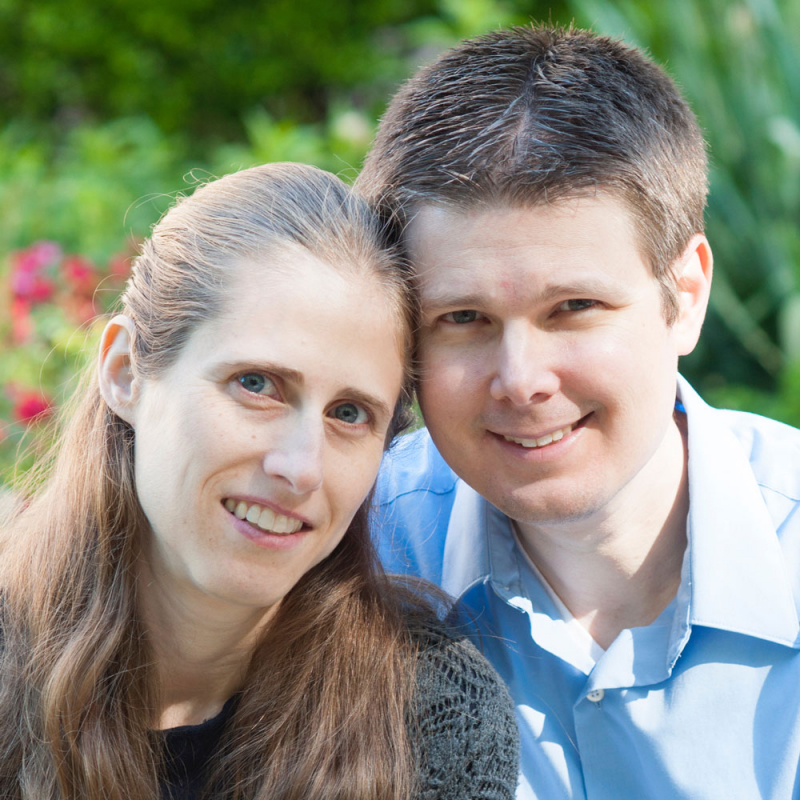
Drs. Eric and Rachel Nelson
What about Spiritual Care?
Sure, we’re physicians, and we are trained to give physical care to our patients. But any doctor, even atheist doctors, do that.
But what about spiritual care? How do we minister to the spiritual needs of our patients and even of our staff? This task is not always easy, but we’d like to share what we have learned over the years in attempting to use our practices as healers to reach people’s spiritual needs, just as Jesus did.
Hospitals
Hospitalists face a unique challenge for witnessing. Shifts can vary from four to seven hours a day. Most of the time your patients are with you for less than a week; most patients you never see again. Therefore, you need to make the best you can of the little time you have with them.
If you are at a teaching hospital, you may work with residents, which will further decrease your patient interaction. Still, as a hospitalist you have a lot more contact with floor nurses. You have face time with consultants from other specialties that you don’t get in the outpatient world. You also have an opportunity to interact more closely with hospital administration. These people are often neglected in our evangelism. They need Christ just as much as our patients do. Therefore, make the best of your time both with patients, and with fellow workers.
Surgeons also face similar time challenges. Before many surgeries, especially big abdominal operations, the patient receives a sheet about optimizing the outcomes, including information about diet, exercise, and trying to decrease risk of nosocomial pneumonias. Then we talk about stress reduction. Of course, prayer is helpful for stress reduction! So that leads me perfectly into offering to pray with my patients before surgery. Because most of my patients in Tennessee are Christians, they are very happy to have me pray with them.
The operating room is a great time to have spiritual discussions with staff. Once we were studying in Sabbath School about the book of James and we were reading about letting patience have her perfect work. I was just sharing with the scrub tech and the circulator. I shared the Bible text, and I said, “I want to be a more patient person.” The tech got this funny look on her face and said, “Really, Dr. Nelson? We can help you with that!”
At the Office
If you work in an office, I’m sure most of you have magazines in the waiting room with spiritual topics, and some of you probably even have art on the walls. We recommend you consider using artwork that combine spiritual themes with medical care in order to get patients thinking along those lines. Music and programs like Life and Health Network are also an excellent opportunity to put on a television in your waiting area and get patients thinking about spiritual dimensions.
That’s all easy and basic. But what we need to do is take it to the next level. Rather than randomly putting out some nice spiritual magazines in the waiting area, think about what interventions you have available in your community for your patients. I have several different journals from Wildwood, and any patient who picks up one of those journals gets information about Wildwood Lifestyle Center, especially if they have any sort of lifestyle concerns. Any patient who picks up a stop-smoking magazine goes down a pathway of care designed for patients who are smoking. There are also several magazines about debt, fighting cancer, and losing weight.
Training our nurses and medical assistants to inquire about spiritual matters is beneficial so they can give us useful background information such as, “This patient is suffering from depression because they just lost their child a year ago and this is the anniversary of their death. They wonder if God exists, and they’ve been to these different churches over the last few months.”
We all develop pathways of care for any common disease that we see in our clinic. We develop a short, thirty-second to one-minute spiel that we give that goes through briefly, in a simple manner, the pathophysiology of the disease, the treatment, and finally ends with “Do you have any questions?” We need to think about how we can use these pathways of care to steer patients into spiritual discussions.
Stop Smoking
Another opportunity to provide spiritual care can arise with stop smoking programs. I ask every patient if they want to quit smoking if they are smokers. They all want to quit. So I say, “Great! Give me your cigarettes!” And, then, you find out who really wants to quit.
Not all of them, for sure, really want to, but for those who are willing to give me their cigarettes and lighter, I have a specific pathway of care. All I do is print off the PDF of the 5-Day Plan to Quit Smoking. Then we go over it with the patient. I also have a secret weapon. I take the cigarettes and lighter home to my kids, and we alternate who gets to throw them away. And then we pray that Jesus will help that person quit smoking. I film them throwing the stuff away and then send the video to the patient. One patient thought it was such a good idea that she had her three kids make videos as well, and all throughout the first several days she was just watching videos all day long of “Mom! Quit smoking!” “Mom! Quit smoking!” It works really well.
Real Life
 On another note, I have two different nurses. One of them loves our prayer time before clinic, and she’s excited when I get there and reminds me right away about prayer. The other one didn’t seem to care. She was polite but didn’t seem interested in prayer. One night that nurse came to work and she looked completely stressed out. She has three children. She and her husband just foreclosed on their house. They now live with her in-laws; financially things are getting so tight they will be declaring bankruptcy. So she came to my room and said, “Dr. Nelson, I am so stressed. And I’ve got to get an outlet. What do you think about journaling?”
On another note, I have two different nurses. One of them loves our prayer time before clinic, and she’s excited when I get there and reminds me right away about prayer. The other one didn’t seem to care. She was polite but didn’t seem interested in prayer. One night that nurse came to work and she looked completely stressed out. She has three children. She and her husband just foreclosed on their house. They now live with her in-laws; financially things are getting so tight they will be declaring bankruptcy. So she came to my room and said, “Dr. Nelson, I am so stressed. And I’ve got to get an outlet. What do you think about journaling?”
I said, “Journaling’s great!” And for the next 15 minutes I talked and talked about how wonderful journaling is. And then we got busy with patients. That night, as I was praying, it suddenly hit me that I’d missed this opportunity to meet her needs and witness! Instead I’d blown it by just talking about journaling. I argued with God. I said, “God, I don’t want to turn her off! If I had talked about praying she probably wouldn’t be interested because she’s told me she’s not a Christian, so I wouldn’t want to offend her…”
A few days later this nurse came again when there was a lull in patients, and she tells me, “You know, Dr. Nelson, I just wanted to tell you I actually really appreciate our prayers before clinic. I didn’t grow up praying. My parents never attended church. I’d really kind of like to learn how to pray. In fact, Dr. Nelson, do you remember the night I came to you and I was completely stressed out and we talked about journaling? Well, on my way to work that night, I was so stressed and I remembered how you prayed before clinic, and I always feel a little better after you pray, so I actually said my very first prayer on my way to work that night.”
I felt about an inch tall. I am thankful God gave me an opportunity to redeem the time. But I realized that I needed to carry the goal to the next level and make another goal. So I was able to share Bible story CDs with this nurse and she’s anxious to learn about the Bible. In addition, with the rest of my staff, I’ve discovered crises on the news have been opportunities to share. We’ve been reading Psalm 91. We’ve discussed Bible prophecy. I’ve shared links with them so they can learn about Bible prophecy for themselves. We will see where it goes from there.
The Sum of the Matter
No question, as physicians, we tend to the physical. But, again, what about spiritual care? There are thousands upon thousands dead in trespasses and sins. Who will render an account for these souls? God calls for workers who will labor for those who know not the truth. Who will rescue those who are out of the fold? Thousands pass through our offices every day who are unwarned and unconverted. What are we going to do to help reach them?
Put as much time and effort into spiritual care as you do into medical care. The stakes are higher – as much higher as heaven is higher than the earth. And the rewards are much greater – as much greater as an eternal reward is compared to anything that this earth has to offer.
<< | Table of Contents | >>
